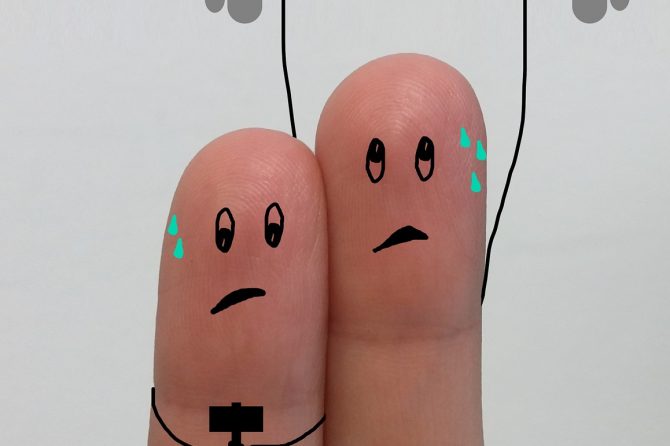
Thyroid Issues Or Adrenal Fatigue?
Your body is talking to you, but you’re not sure how to interpret the message: You’re inexplicably tired all the time, you can’t concentrate, and you’re crankier than usual. Your skin is also dry, your hair seems to be thinning, and you’re gaining weight. What’s going on?
A quick search with Google will point you toward a number of possible diagnoses, with hypothyroidism and adrenal fatigue likely topping the list. The only way to get to the root of your problem is to see a real live MD, who ought to take a thorough history, do a physical, and perhaps run a few tests. In the meantime, here’s some insight into whether a thyroid or adrenal issue might be to blame.
Think Thyroid First
Thyroid disorders are extremely common. 11 million people in the US have an underactive thyroid (aka hypothyroidism). Women are more likely than men to develop this problem; the risk also goes up after age 60.
When your thyroid—a small, butterfly-shaped gland that sits at the base of your neck—is functioning properly, it produces hormones that regulate your metabolism and body temperature. If it’s not making enough thyroid hormone, your body’s processes start slowing down. At first, you may not notice anything. But as your metabolism continues to slow, the classic signs of a sluggish thyroid kick in: fatigue, weight gain, constipation, sensitivity to cold, and dry skin.
Of course, these symptoms can point to other conditions as well, so the only way to be certain you have hypothyroidism is with a TSH (thyroid-stimulating hormone) blood test. Your doctor will likely prescribe a daily dose of a synthetic thyroid hormone (thyroxine) to replace what your body is missing.
If your thyroid checks out, then maybe it’s time to consider adrenal fatigue.
It’s worth noting that most mainstream physicians don’t think adrenal fatigue exists. But some health care practitioners—mostly naturopathic doctors and some holistic MDs—believe that adrenal fatigue is real and ought to be taken seriously.
According to the believers, signs of adrenal fatigue include being both tired and wired, getting lightheaded when you stand up quickly, not being able to shake colds or infections, and feeling anxious, irritable, or moody. The theory is that these symptoms occur because your adrenals—tiny glands that sit on top of your kidneys and secrete stress hormones—burn out.
The result is a mild form of cortisol deficiency, which may be called adrenal fatigue or adrenal dysregulation. (This should not be confused with adrenal insufficiency or Addison’s disease.)
Adrenal fatigue happens when unremitting stress causes your adrenals to pump out more and more stress hormones, and after working overtime for too long, they can’t keep up.
If you think you might have this issue, it is recommended getting your cortisol levels tested. Cortisol can be measured with blood, urine, saliva, or even hair tests. Most [Western] doctors only recognize the merits of blood testing—it’s considered the universal language of conventional medicine — but dried urine testing (it involves peeing on a piece of filter paper) may be a better option for measuring hormones.
If you are diagnosed with adrenal fatigue, lifestyle changes might do the trick. You should cut out sugar (“It acts as an adrenal stimulant”), as well as boost your intake of key vitamins that support this gland, including B vitamins and vitamin C.
Exercise is also important. A 20-minute walk or light jog might be plenty while you’re healing.
Meanwhile, limit your exposure to toxins, such as bisphenol A (BPA), which can mess with your hormones. You’ll find BPA in certain plastic containers, many canned goods (cans are often lined with BPA), and on credit card receipts.
Some practitioners also give cortisol to patients with adrenal fatigue, but this is controversial, as taking too much of this hormone can be dangerous.
Thyroid concerns and Adrenal fatigue is one of the regenerative medicine treatments offered at Integrative Telemedicine. Our physicians will perform a comprehensive evaluation of your condition in order to determine which treatment might be best for you. They will explain your options so that you can make a decision you’re most comfortable with.
If you have any questions or would like to schedule a consultation, call our friendly staff today at (520) 396-4866 or fill out our online request form. We look forward to being your healthcare partner.
Leave a reply